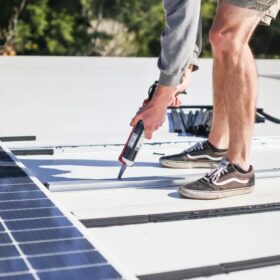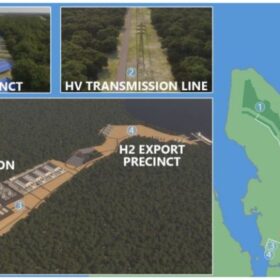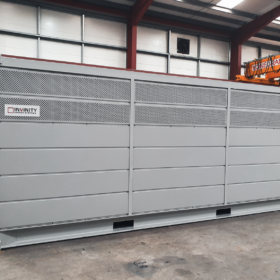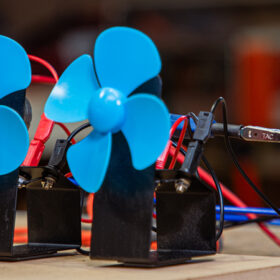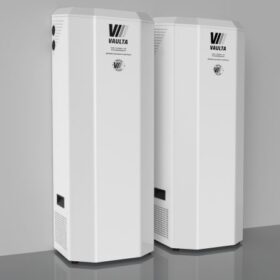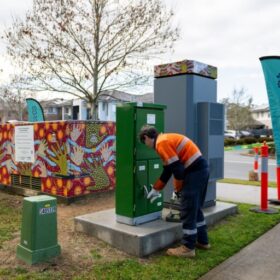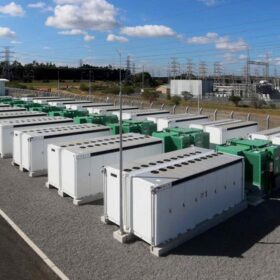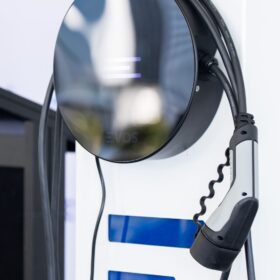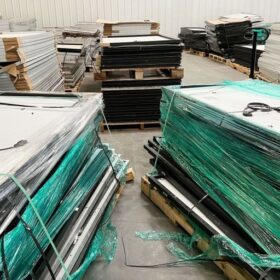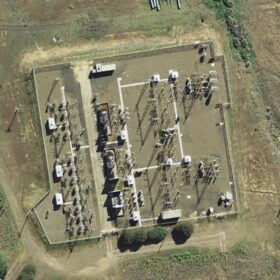Lightweight solar panel provides solution for rooftop installations
Australian installer UV Solar has rolled out a new frameless solar panel that manufacturer GoodWe says is 60% lighter than conventional PV modules, making it ideal for rooftops that are unable to support traditional PV and racking.
Australian developer plans 2.6 GW solar farm for green hydrogen project
Provaris Energy has advanced its Tiwi H2 green hydrogen export project for the Tiwi Islands in Australia’s Northern Territory, with the design feasibility report for the proposed solar farm and transmission system now complete.
Horizon focusing on vanadium flow batteries for energy storage
Horizon Power, Western Australia’s regional power supplier, has revealed plans to deploy a 78 kW/220 kWh vanadium flow battery.
New proton batteries for megawatt-scale renewables storage
Engineers at Melbourne’s RMIT University have developed a rechargeable “proton battery” that has the potential to store more energy than currently available lithium-ion batteries.
Australian manufacturer unveils 5.12 kWh battery for residential applications
Vaulta, an Australian battery tech company, has developed its first dedicated residential battery. The small-scale energy storage system can purportedly operate for 4,000 cycles, with an 80% depth of discharge.
Australian grid operator testing community battery tech
A grid-connected community battery has gone live in Sydney, Australia, with New South Wales electricity distributor Endeavour Energy testing the tech to maximize the benefits of rooftop solar.
Australia’s Transgrid to tender grid services from battery operators
Transgrid, Australia’s major grid operator, plans to launch a competitive process to procure grid support services from third-party battery operators. It aims to maintain reliable electricity supply in two growth regions in New South Wales by looking beyond traditional network infrastructure.
Australian startup unveils new wall-mounted residential EV chargers
Evos, an Australian startup specializing in electric-vehicle charging technology, has unveiled its first home chargers. The 7 kW wall-mounted devices are designed to add driving range to EVs for every hour they are plugged in.
Australian team claims 99% recovery rate with solar recycling process
Engineers at the University of New South Wales (UNSW) have developed a new, more effective method to recycle end-of-life solar panels. The technique allows them to quickly and efficiently separate 99% of PV cell component materials.
Green light for new big batteries in Australia
The government of the Australian state of New South Wales has provided planning approvals for two new grid-scale batteries. They will deliver a combined 540 MWh of energy storage capacity to support the state’s rapidly changing energy market.

